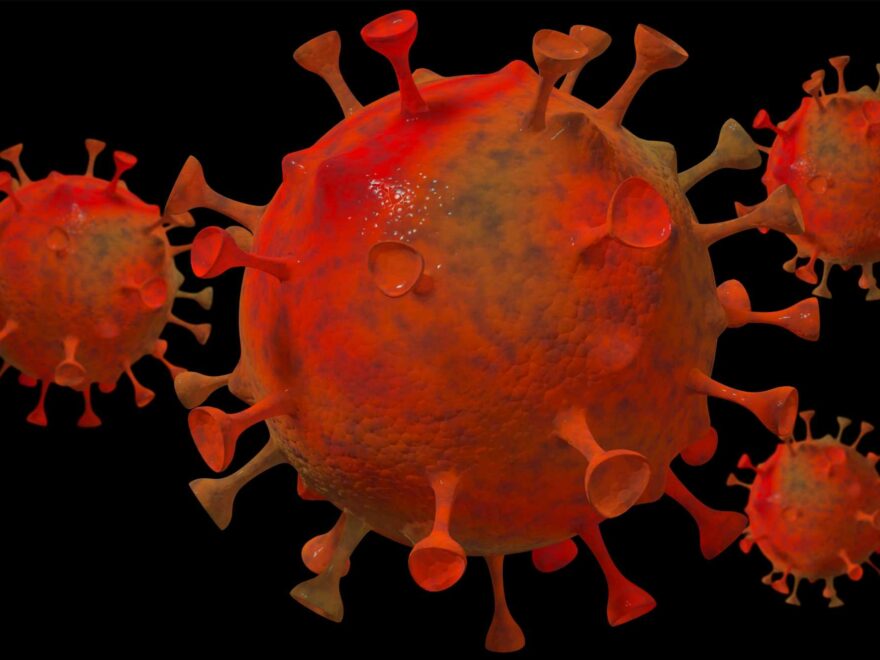THE “Kraken” Covid variant is likely to take over and become dominant in the UK – but is not yet a “variant of concern”, experts have said today.
XBB.1.5 has been increasing in the US in recent months as have cases of CH.1.1, also known as 'Orthrus' the UK Health Security Agency (UKHSA) said.

At present in the UK, BQ.1 and its sublineages are the dominant strains.
A risk assessment conducted by UKHSA together with academic partners found that CH.1.1 and XBB.1.5 are currently the variants most likely to take over from BQ.1 as the next dominant variant in the UK.
This is unless further novel variants arise, experts said.
Neither have been designated as variants of concern by UKHSA, the report found.
The Kraken variant – an off-shoot of Omicron – was first detected in India in August and has since been found in 25 countries.
The 'Kraken' nickname was given to the variant by Twitter users – the strain does not have an official name with a Greek letter because it is a version of Omicron.
The name appears to have first been suggested on Twitter by evolutionary biologist Prof T. Ryan Gregory.
"This year, some of us decided that we needed nicknames for variants worth watching, given that the WHO wasn't giving any new names under their system," he wrote.
Most read in Health

I thought mum had heartburn – weeks after we discovered the truth she was dead

I'm a tummy doc – here’s how often you should do a number two (don't hold it in)

Warning as millions at risk of 6 deadliest cancers – how many signs can you spot?

Sick Brits face making their own way to hospital during ambulance strike TODAY
"We've been using mythological creature names for variants that are being discussed outside of technical discussions."
ORTHRUS OFFSHOOT
Data also shows that CH.1.1 is an offshoot of BA.2.75, which was first detected in May 2022 in India.
Last week Independent Sage said CH.11, also known as 'Orthrus', was also representing a small number of cases.
Dr Meera Chand, Director of Clinical and Emerging Infections, UKHSA said: "Through our genomic surveillance we continue to see evolution of variants in the Omicron family.
"UKHSA is constantly monitoring the situation and working to understand the implications for public health.
"Vaccination remains our best defence against future COVID-19 waves, so it is still as important as ever that people come forward and take up all the doses for which they are eligible as soon as possible."
While these variants are not yet dominant, experts have said that those in the US coming down with the Kraken strain have experienced cold and flu like symptoms.
Speaking at a press conference Dr Allison Arwady, the Chicago Department of Public Health commissioner, said: "We’re seeing more people actually just have cold-like symptoms”.
"But are less likely to have those flu-like, really feeling very sick [symptoms such as] the high fevers.”
Typical cold symptoms include a runny nose, sore throat, cough and congestion, according to the NHS.
The Sun has been urging Brits to protect against both Covid and flu, as part of its “Do the Double” campaign with a good degree of success.
The Omicron strain has already been found to be milder than others that came before it.
And the mammoth rollout of vaccines across the UK has meant many already have some level of protection from the bug.
However, the World Health Organisation (WHO) has said XBB.1.5 is "the most transmissible sub-variant which has been detected yet".
The new version of the bug has gained additional mutations which make it better at evading immunity and therefore "more infectious", Prof Francois Balloux of the UCL Genetics Institute has said.
He added: "It is widely anticipated to go up in frequency globally, and may cause a sizeable fraction of cases globally in the near future.
"As such, it could push up case numbers over the coming weeks in the UK."
However, Prof Jonathan Ball a virologist at the University of Nottingham said there was "no evidence it's more dangerous" than current strains.
Read More on The Sun

Little-known middle aisle tricks by Aldi & Lidl to get you to spend more

Sky is giving out set-top box upgrades for free – are you eligible?
"It might be able to escape antibodies, but that’s not the only immunity we have.
"Our immune system is used to adapting to viruses," he explained.
Source: Read Full Article
